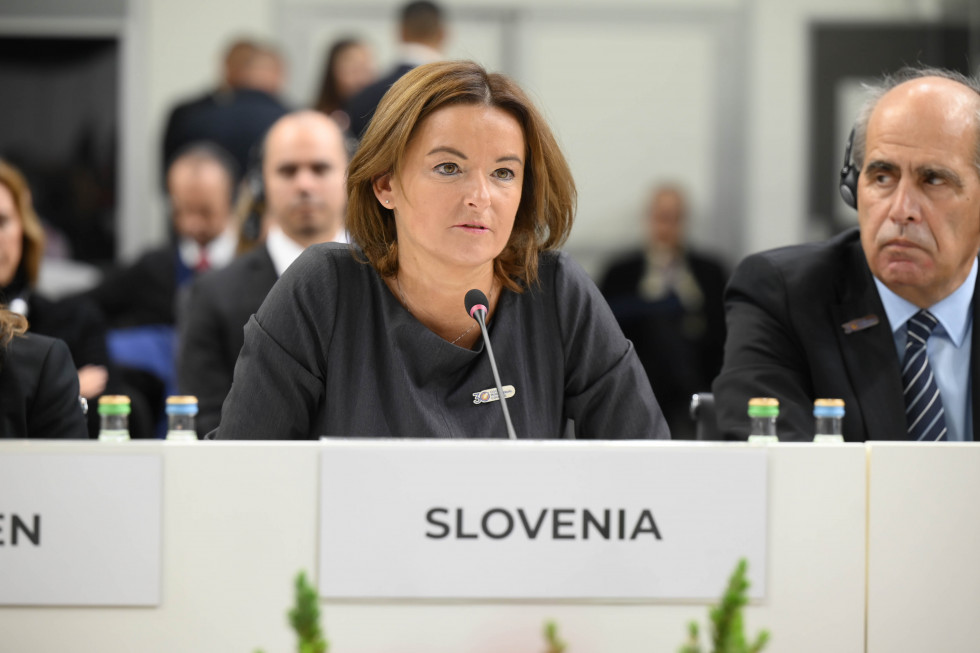Minister Fajon at the OSCE Council: “The work of the OSCE must not be hindered.”

Minister Tanja Fajon | Author Organizacija za varnost in sodelovanje v Evropi
In her speech, the head of Slovenian diplomacy, Minister Fajon, reaffirmed Slovenia’s commitment to strong, rules-based and effective multilateralism, which promotes cooperation in various multilateral forums, including the OSCE. “The fact is that the OSCE as an organisation is at a crossroads, as the foundations of the European security architecture are very shaky after the Russian aggression against Ukraine. However, once the war is over, it will be crucial to rebuild trust, and this is where the OSCE can play an important role. In an increasingly polarised world, dialogue platforms such as the OSCE deserve our full support. I therefore thank North Macedonia for its excellent chairmanship and welcome the proposed decision for Malta to take the helm of the organisation next year. The work of the OSCE must not be hindered. It must therefore be ensured that the OSCE has sufficient resources and appropriate leadership to continue to fulfil its mandate,” the minister emphasised.
With regard to Ukraine, Minister Fajon assured that Slovenia will continue to support and help Ukraine, both in dealing with the consequences of the Russian aggression and on its path towards the EU. “Slovenia strongly condemns the deliberate killing of civilians and attacks on civilian targets and critical infrastructure, which are among the most serious crimes that must never go unpunished. The adoption of the Ljubljana-Hague Convention on Mutual Legal Assistance in the investigation and prosecution of international crimes will be a useful tool for an effective response to such heinous acts,” the minister stressed. “Behind every geopolitical challenge we face there are people and human lives. It is our responsibility to find political rather than military solutions to resolve conflicts,” said the minister.
On the sidelines of the event, Minister Fajon had a brief meeting with North Macedonia’s Foreign Minister Bujar Osmani. Her visit to Skopje will continue with a visit to Deputy Prime Minister Bojan Maričik, with whom she will, among other things, sign an agreement on development cooperation for the years 2023–2024 on 1 December.

